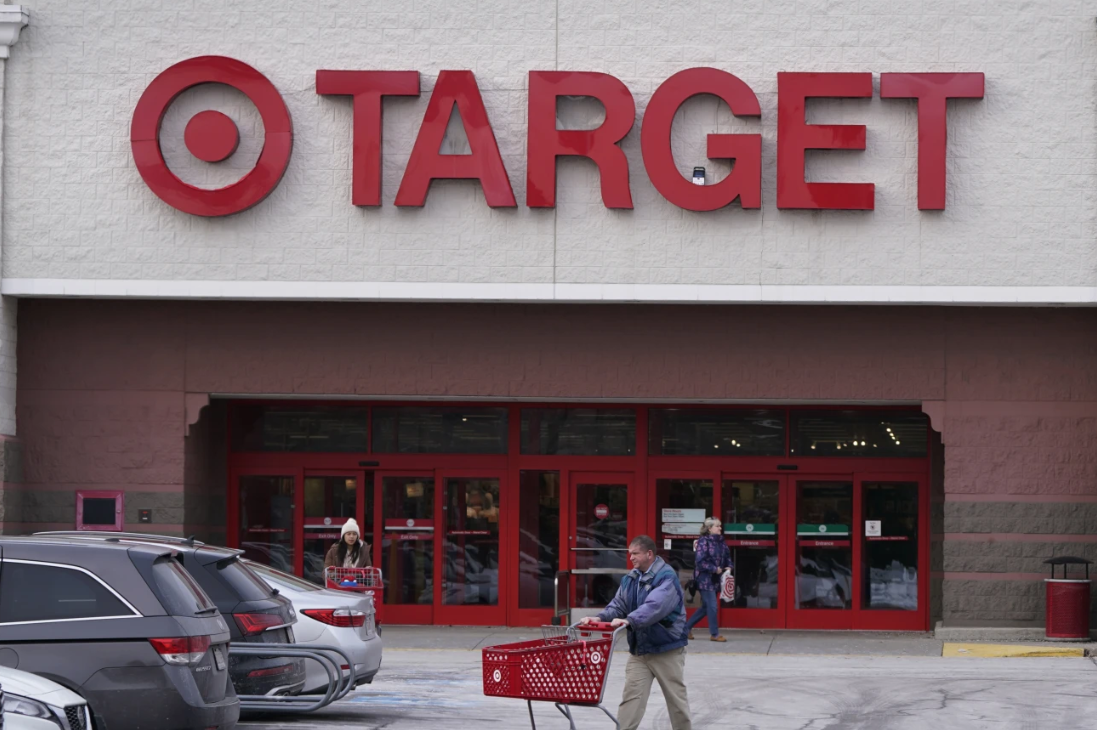Target’s first-quarter sales dropped more than expected, and the company now expects overall sales to decline throughout 2025. This comes as shoppers, concerned about tariffs and the broader economy, have started spending less.
Adding to the pressure, customer boycotts also hurt performance. Earlier this year, Target scaled back several diversity, equity, and inclusion (DEI) efforts after facing backlash from conservative activists and even criticism from political leaders. However, the company’s move to reduce LGBTQ+ Pride Month merchandise in 2023 led to a backlash from the other side, disappointing many loyal customers.
Shares of Target dropped 3% in pre-market trading on Wednesday.
Revenue for the quarter fell 2.8% to $23.85 billion, missing Wall Street’s estimate of $24.23 billion. This is also down from $24.53 billion in the same period last year. As a result, Target cut its annual sales outlook, now expecting a small decline instead of the 1% growth it had projected in March.
For 2025, Target forecasts earnings per share between $7 and $9, not including potential gains from legal settlements. Analysts had expected earnings of $8.34 per share on $106.7 billion in revenue.
Comparable sales — which include both in-store and online activity — dropped 3.8%, with in-store sales down 5.7%, while online sales rose 4.7%. That’s a reversal from a 1.5% increase in the previous quarter.
Target also saw a 2.4% decline in total transactions and a 1.4% decrease in the average purchase size. The company said it couldn’t accurately determine the individual impact of each factor hurting its business.
In response, Target is launching a new internal office, led by Chief Operating Officer Michael Fiddelke, aimed at faster decision-making to drive sales. Chief Strategy and Growth Officer Christina Hennington will transition into a strategic advisory role.
To reconnect with price-sensitive shoppers, Target is introducing 10,000 new products starting at $1, with most under $20. CEO Brian Cornell emphasized the urgency of winning back customers, saying, “We’re not satisfied with these results, so we’re moving with urgency to navigate through this period of volatility… We’ve got to drive traffic back into our stores or visits to our site.”
Target said it is gaining or holding market share in only 15 out of 35 product categories. Some growth was seen in areas like women’s swimwear, baby and toddler clothes, and activewear.
The latest results highlight Target’s continuing challenges in boosting sales of non-essential items like apparel and home décor, especially as competition intensifies from companies like Walmart and Amazon. Target’s stock is down more than 37% over the past year.
Meanwhile, Walmart recently reported strong sales and has already increased some prices due to tariffs. Walmart also warned that more price hikes are expected during the back-to-school season. For instance, car seats made in China that now sell for $350 could rise by $100.
Target didn’t offer details on how tariffs are affecting its prices but said it is actively adjusting pricing weekly. “Some are going up. Some will be reduced,” Cornell said.
Earlier this month, U.S. import tariffs on Chinese goods were scaled back from 145% to 30%, with some tariffs paused for 90 days. But American consumers are already feeling the pressure from rising prices and economic uncertainty. Companies like Mattel, Stanley Black & Decker, and Procter & Gamble have announced or implemented price increases tied to the trade war.
Unlike Walmart, which gets about 60% of its revenue from groceries, Target relies more on discretionary items like clothing and electronics — categories more vulnerable to shifts in consumer spending.
Target has made progress in shifting its supply chain away from China. The company has reduced store-brand product sourcing from China to 30%, down from 60% in 2017, and plans to lower it further to 25% by the end of next year. Target is expanding sourcing from countries like Guatemala and Honduras and exploring options within the U.S.
On the social and political front, Target continues to face scrutiny. In January, the company announced it would phase out several DEI programs, including one supporting Black employees and businesses. This decision has drawn criticism from activists and leaders pushing for stronger corporate diversity commitments.
Reverend Jamal Bryant, who organized a 40-day boycott of Target last year, has since called for continued action unless the company renews its support for DEI and Black-owned businesses and banks.
Despite the challenges, Target reported a quarterly profit of $1.04 billion, or $2.27 per share, up from $942 million, or $2.03 per share, a year ago. The company operates nearly 2,000 stores and employs over 400,000 workers across the U.S.














